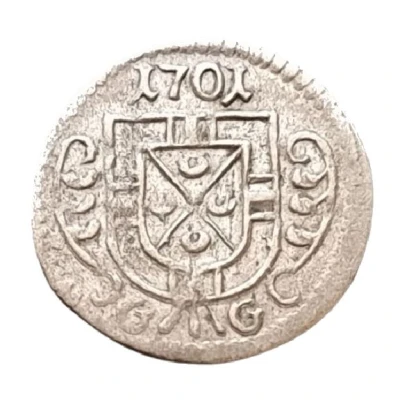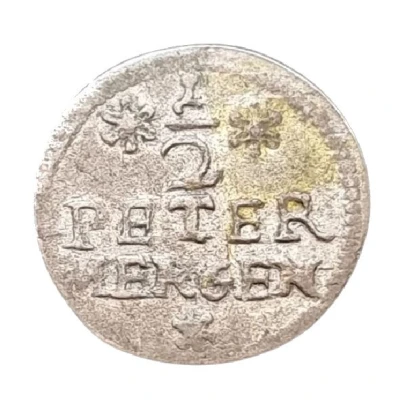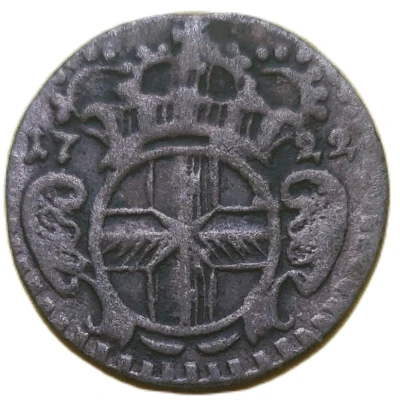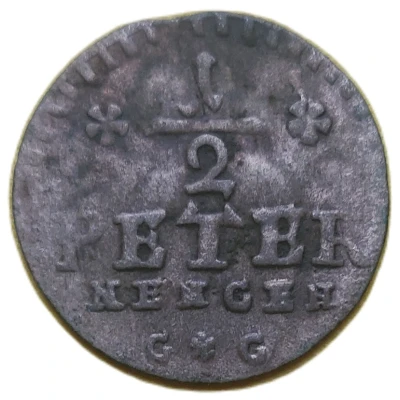½ Petermenger - Francis Louis of Pfalz-Neuburg
1722 year| Billon | - | - |
| Issuer | Archbishopric of Trier (German States) |
|---|---|
| Prince-archbishop | Francis Louis of Neuburg (Franz Ludwig von Neuburg) (1716-1729) |
| Type | Standard circulation coin |
| Year | 1722 |
| Value | 4 Pfennigs (4 Pfennige) (1⁄96) |
| Currency | Thaler |
| Composition | Billon |
| Shape | Round |
| Demonetized | Yes |
| Updated | 2024-10-05 |
| Numista | N#97473 |
|---|---|
| Rarity index | 100% |
Reverse
4-line inscription with denomination and mintmasters initials.
Lettering:
*1/2*
PETER
MENGEN
G.G
Interesting fact
One interesting fact about the ½ Petermenger coin from the Archbishopric of Trier is that it was minted during a time of great economic and political change in Europe. The coin was issued in 1722, just a few years after the end of the Great Northern War, which had a profound impact on the German states and the Holy Roman Empire. The coin's minting was likely a response to the economic instability caused by the war, as well as the growing influence of mercantilism and the need for a more standardized system of currency. The fact that it was made of Billon, a copper and silver alloy, also speaks to the economic conditions of the time, as it was a more affordable and accessible material than pure silver or gold. Overall, the ½ Petermenger coin is a fascinating piece of history that provides insight into the economic and political climate of early 18th-century Europe.



